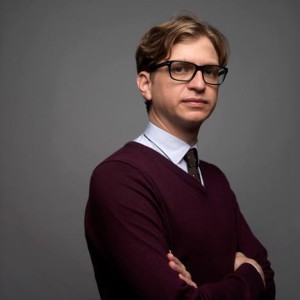Folkstone Triennial Conference
Imagined Cities
Saturday 11 and Sunday 12 October 2014
10am-6pm
Folkestone Quarterhouse
Mill Bay,
Folkestone
Entrance:
One day: £15 / £10 concessions
Both days: £20 / £15 concessions
Ticket prices include tea and coffee, and a glass of wine at the drinks reception
This two-day event looks at the relationship between art and architecture in the way that cities and towns are planned and built, as well as how they are experienced as places to live, work, play and learn.
The conference is inspired by the tagline – ‘A City Imagined’ – for East Kent’s controversial bid to become City of Culture 2017. The bid created an imagined city that included one official city (Canterbury), two towns (Ashford and Dover), a district (Shepway, including Folkestone) and the ‘Isle’ of Thanet. The bid failed to make the shortlist but provoked a lively debate about our preconceived ideas around architecture and urbanism, and how we might re-imagine the notion of the city.
The first day brings together artists, architects, planners and thinkers to explore issues around masterplanning. The second day looks at the impact of culture-led regeneration, its legitimacy, challenges and legacy, with particular focus on the Kent coast.
Keynote speakers: Sir Terry Farrell, architect; and Jude Kelly, artistic director, Southbank Centre
Speakers: Pablo Bronstein; Ben Campkin; Brigitte Orasinski; Mark Davy; Diane Dever; Owen Hatherley; Sam Jacob; Sue Jones; Kieran Long; Fred Manson; Anna Minton; Rowan Moore; muf architecture/art; Victoria Pomery; Vicky Richardson; Darren Smith; Something & Son; Gabor Stark; Wouter Vanstiphout; Finn Williams
Program
Saturday 11 October: Artists in Masterplanning
10.00 Registration
10.30 Welcome
Part 1: Planning for the Future
What do we want from our towns and cities, and who should provide it? What is the
right balance between housing, industry, public amenities, leisure and tourism? What
role is there for artists as well as architects in masterplanning today, and how
involved should the public be? What do we really mean by ‘sustainability’? How
green should our urban areas be, and are urban agriculture and greening schemes
as beneficial as we are led to think? Do we need to brand cities? Do we need
masterplanning at all?
10.45 Keynote:
Sir Terry Farrell, architect
11.30 Tea and coffee break
12.00 Panel discussion with:
Mark Davy, Founder, Futurecity; muf Architecture/Art; Something & Son; Finn
Williams, Regeneration Area Manager for North-West and Central London at the
GLA
Chair: Vicky Richardson, Director Architecture, Design, Fashion, British Council
13.30 Free time for lunch and chance to visit Folkestone Triennial artworks
15.30 Afternoon session
Part 2: Learning from the Past
How can we preserve the past while planning for the future? How do we learn from
recent regeneration problems, like social cleansing and ghettoization? What is the
best way to deal with infrastructural problems from the past – such as poor access to
transport networks, ageing Tube and train lines and poor quality housing? Should we
be freer to demolish what doesn’t work and start again? Or should we always put
heritage first? Will historic towns and cities be able to compete on the global stage
against newly built high-tech cities?
Panel discussion with:
Pablo Bronstein, artist; Ben Campkin, author of Remaking London, editor of Urban
Pamphleteer and Director of UCL’s Urban Laboratory; Diane Dever, artist; Owen
Hatherley, author, Militant Modernism and A Guide to the New Ruins of Great Britain
Chair: Anna Minton, writer and journalist and author of Ground Control
17.00 Drinks reception: all welcome
Sunday 12 October: Art in Regeneration
What is the role of culture in regeneration? Is there such a thing as regeneration not
led by culture? Is culture-led regeneration sustainable on current levels of funding?
Has the term ‘regeneration’ become tangled up with the more negative term
‘gentrification’? What really makes people move to a new town, or even country, and
what makes them stay? What do artists feel about their role in those towns and
cities? How do British regeneration policies compare internationally?
10.00 Registration
10.30 Welcome
10.45 Keynote:
Jude Kelly, artistic director, Southbank Centre, and founder, Metal
(Liverpool/Southend on Sea/Peterborough)
11.10 Respondent and questions:
Fred Manson, urban renewal specialist and former Director of Regeneration at the
London Borough of Southwark
11.40 Tea and coffee break
12.10 A Clockwork Jerusalem: Planning and the British Psyche
Sam Jacob, principal of Sam Jacob Studio for architecture and design, co-founder of
FAT and co-curator of the British Pavilion at the 14th Venice Architecture Biennale;
Kieran Long, Senior Curator of Architecture, V&A; Wouter Vanstiphout, Crimson
Architectural Historians, and co-curator of the British Pavilion at the 14th Venice
Architecture Biennale
13.15 Free time for lunch and chance to visit Folkestone Triennial artworks
15.15 Coastal Regeneration, In-migration and UK Census Data
Professor Darren Smith, Department of Geography, Loughborough University
16.00 Case study: Cultural Regeneration on the Kent Coast
Sue Jones, Director, Whitstable Biennale; Brigitte Orasinski, Artistic Director,
Strange Cargo; Victoria Pomery, Director, Turner Contemporary; Gabor Stark,
Subject Area Leader MA Urban Design, University for the Creative Arts – Canterbury
School of Architecture
Chair: Rowan Moore, architecture critic of The Observer and author of Why We
Build
17.30 Drinks reception: all welcome
Entrance:
One day: £15 / £10 concessions
Both days: £20 / £15 concessions
Ticket prices include tea and coffee, and a glass of wine at the drinks reception
Click here to book a weekend ticket.
Click here to book a day ticket.
Click here to download the Imagined Cities Itinerary pdf
Image: Kieran Long, Senior Curator of Contemporary Architecture, Design and Digital at the Victoria & Albert Museum. Courtesy Folkstone Triennial


